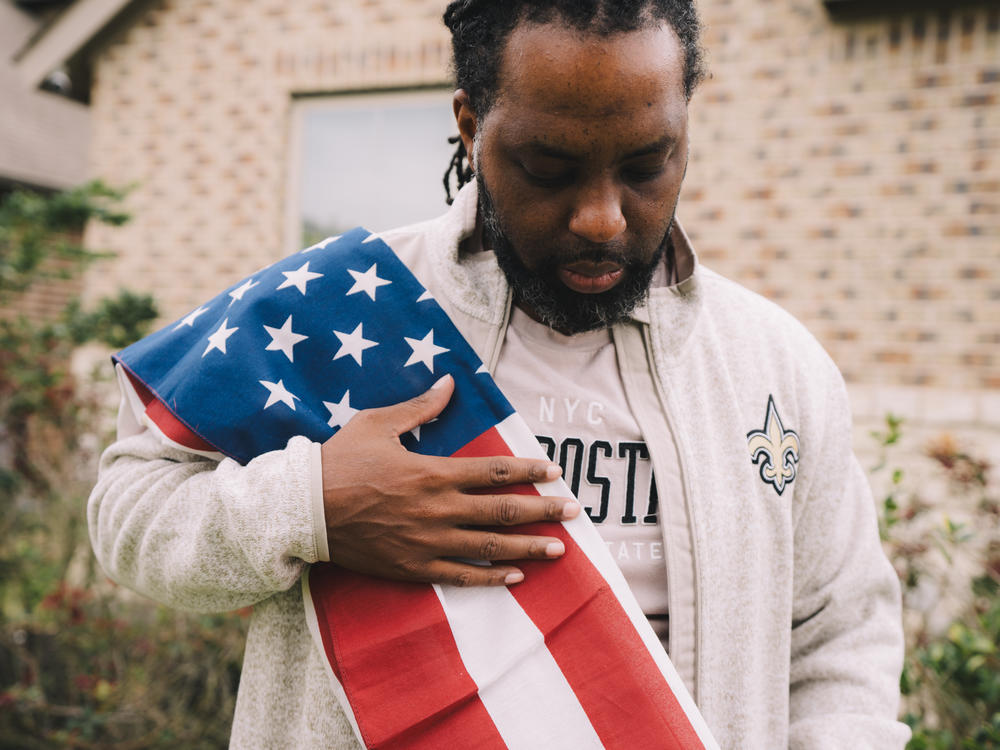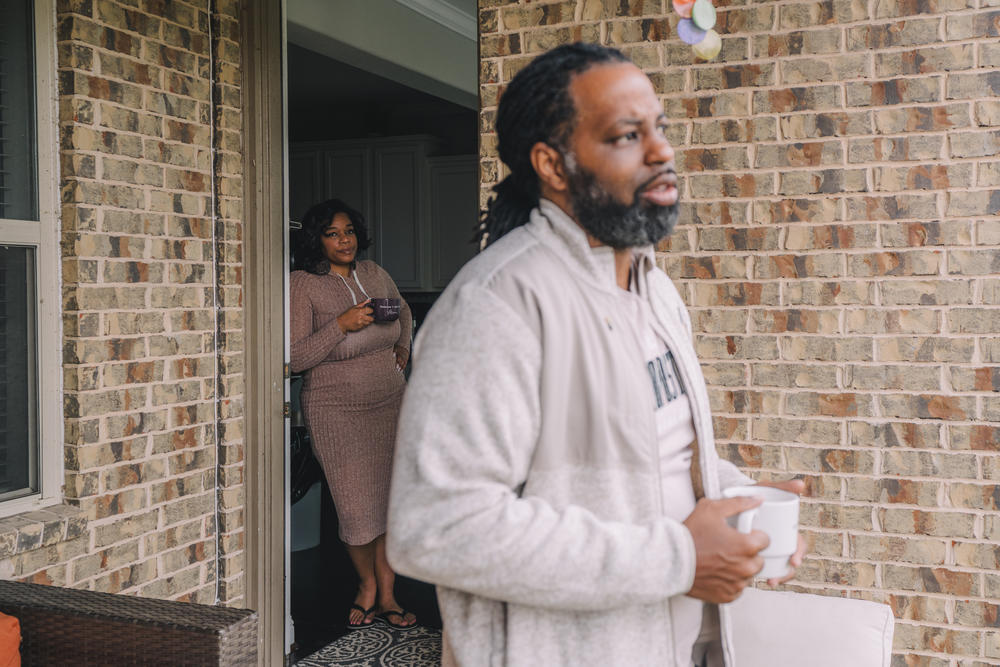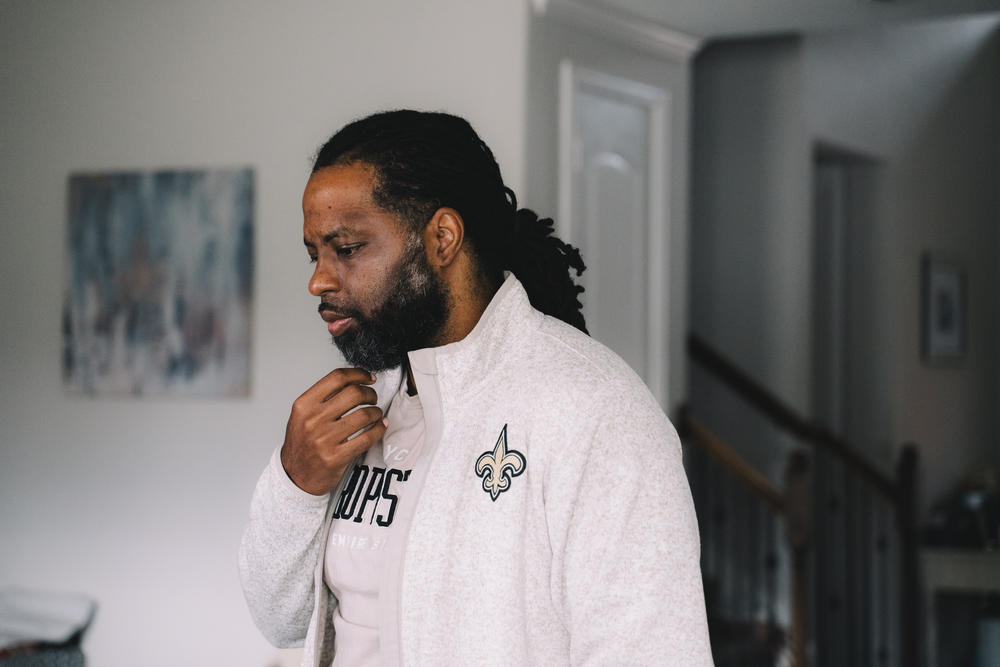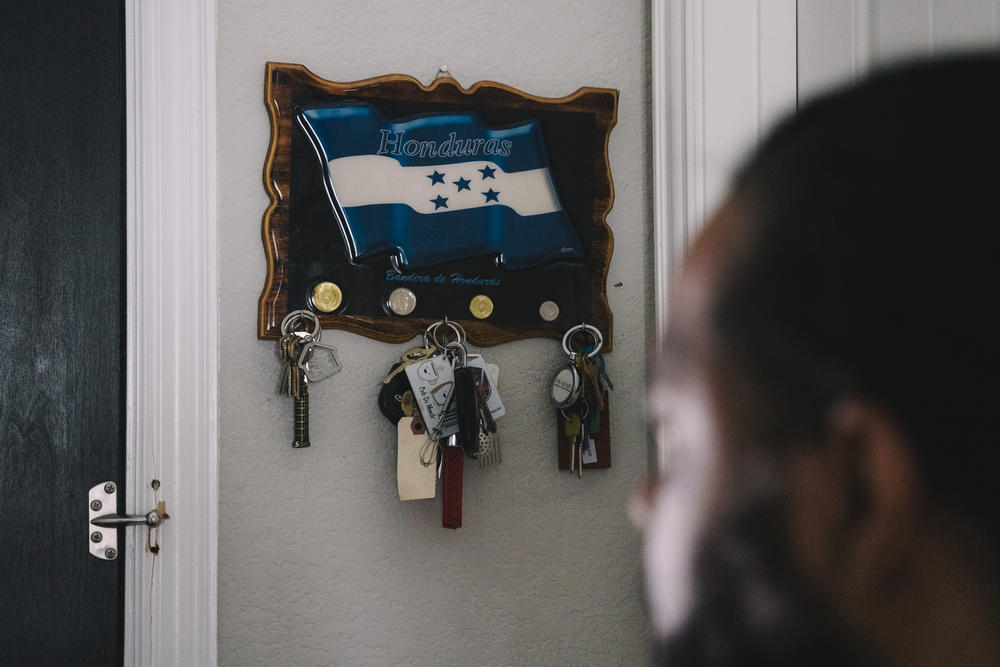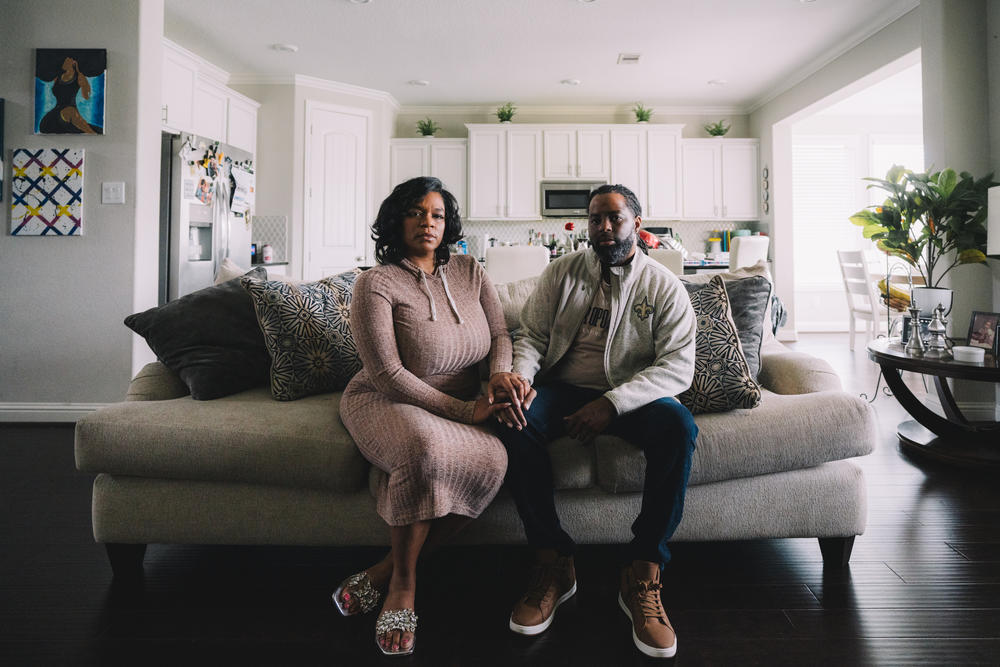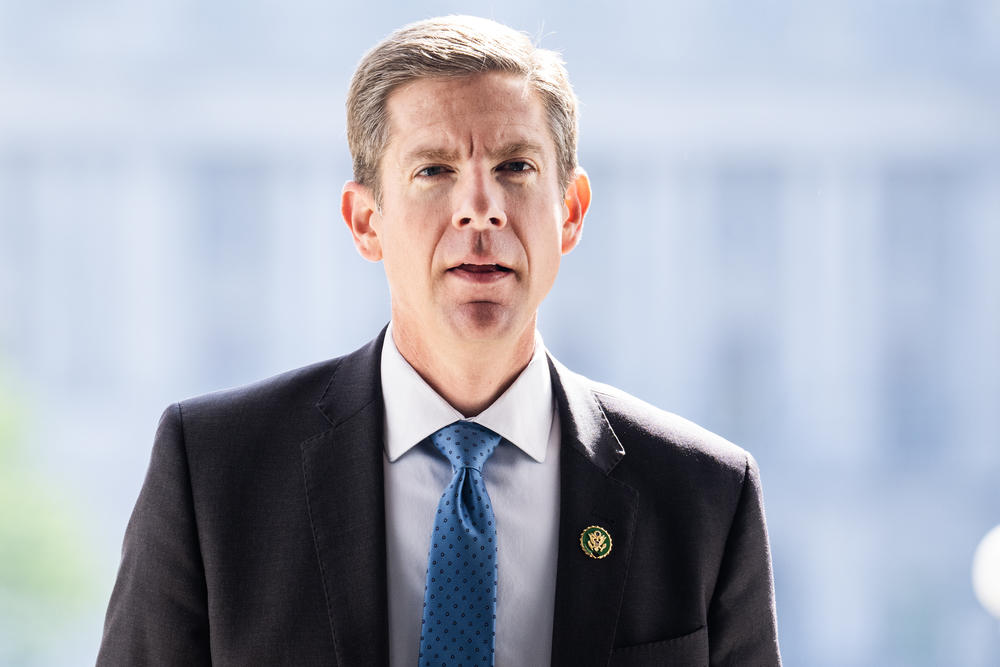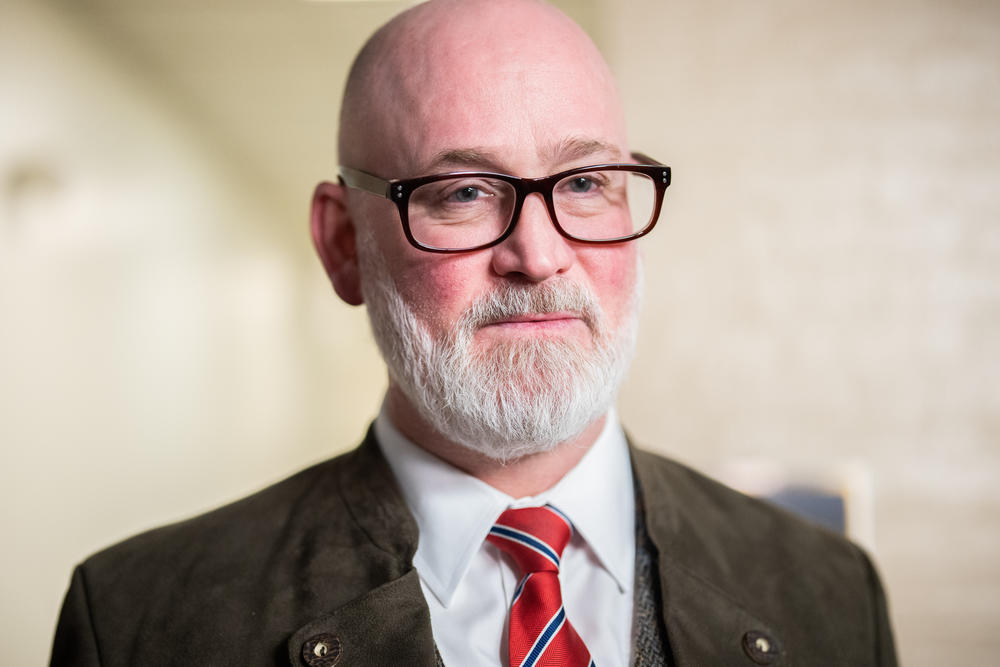Section Branding
Header Content
Thousands of vets fell victim to a bait-and-switch...by the VA? Lawmakers want a fix
Primary Content
Lawmakers summoned the head of the Department of Veterans Affairs' loan program, John Bell, to Capitol Hill this week and asked him to explain how the VA is going to fix a debacle that's left many vets in danger of losing their homes.
His answer: They don't know yet.
"We are looking for a solution to be able to help 40,000 borrowers stave off foreclosure," Bell told them.
The VA has been scrambling since an NPR investigation revealed that it pulled the plug on a key program while thousands of vets were still in the middle of it – effectively turning a well-meaning pandemic aid effort into a bait-and-switch trap for homeowners.
At issue is what's called a COVID mortgage forbearance. Set up by Congress after the pandemic hit to help people who lost income, it gave homeowners with federally backed loans a sanctioned way to skip mortgage payments. The missed payments would get moved to the back of the loan term so when homeowners got back on their feet they could just resume their normal payments.
But in October 2022, the VA abruptly ended a crucial part of its forbearance program, stranding tens of thousands of vets who were told they now needed to come up with all the missed payments at once.
"I'm like, how am I gonna come up with ... almost $23,000? How am I gonna come up with that?" asks Edmund Garcia, a combat veteran who served in Iraq.
Garcia's wife lost her job during the pandemic, and when he called his loan servicer in late 2022, he was offered a forbearance. After three months, Garcia says he tried to start paying again but was told the program had ended. The mortgage company said if he couldn't afford to pay back all the missed payments in a lump sum then he couldn't resume making his regular monthly payments. So he fell further behind. Then just weeks ago he was notified that all the missed payments were now due.
"You know, what am I supposed to do?" Garcia said. The paperwork from his lender said he could sell his home in a short sale as one option. "I'm gonna lose my home. What am I gonna do with my kids?" he says.
After NPR first reported on the problem last November, lawmakers wrote to the VA secretary, who quickly put a pause on all foreclosures of VA loans. The delay was planned to last six months, after which the VA said it would have a solution that will allow veterans to resume an affordable mortgage payment.
In the meantime, many veterans say their loan servicers are still pushing them to either pay all the missed payments immediately or accept costly loan modifications.
Garcia is a first-generation American; his parents are from Honduras. He was the first in his family to go to college, and he said joining the military was supposed to be part of that American dream story. The VA home loan is part of the GI bill, and since the end of World War II it's been giving veterans a leg up into the middle class.
Garcia served four years, including combat with the Army's 101st Airborne Division in Iraq, until a bullet in the ankle ended his military career. It wasn't life threatening, but it's been a complicated injury. He's had 10 ankle surgeries in the years since, and there are still screws and plates in his foot.
"You know, aside from the chronic pain, I'm doing OK. I have my good days and I have my bad days," he says.
Garcia and his wife and four daughters live south of Houston in a house they bought with a VA home loan. Just two weeks ago he was in his car, on the phone with his mortgage company, waiting to pick up his 16-year-old daughter from school, when the company demanded full payment.
"I deal with PTSD, I deal with anxiety, and, you know, my heart is beating through my chest when I was having this conversation," he says. "My daughter is in the car ... I have a panic attack right there in front of her after I hang up the phone. And she's asking, 'Dad, are you OK?' "
Garcia says it feels like a bait-and-switch, because he and other vets were told before he took part in this forbearance program that their payments wouldn't go up.
If he can't pay back all the missed payments, he was offered a loan modification that would result in much bigger monthly bills. Garcia's old mortgage rate was 2.4%; the offer would increase that to 7.1% with payments that are $700 a month higher.
"So this is my dilemma," Garcia says he told the mortgage representative on the phone. "You guys have put a financial gun to my head saying, sign this or else."
Garcia's lender, a company called Mr. Cooper, said in a statement to NPR that it is "bound by the programs offered by VA," and that "there is currently an industry need for enhancements to VA loss mitigation solutions."
Just how the VA plans to improve the options for veterans stuck in this predicament was the focus of the congressional hearing this week.
"We need answers today," said Rep. Mike Levin, a California Democrat and ranking member of the House VA subcommittee.
Bell, the head of the VA loan program, said those 40,000 veterans would get help from a new loan modification plan called the VA Servicing Purchase program or VASP.
"VASP will provide veterans with an affordable scheduled monthly mortgage payment that reduces debt owed over time at a rate much lower than the current market interest rate," Bell said.
Levin wanted to know though, aside from the thousands of vets on the verge of foreclosure and still delinquent on their loans, what about those who've already ended up in much more costly mortgages as a result of the VA's actions?
"What if the veterans already signed up for a higher interest loan modification?" Levin asked. "What are you going to do to make these veterans whole?"
Bell said they "possibly could" be eligible, though it was unclear whether the VA had decided if veterans would first have to default on their current mortgages.
Rep. Derrick Van Orden, a Wisconsin Republican, grew frustrated with Bell's answers.
"Mr. Bell, you didn't answer that question and you're really starting to irritate me," Van Orden said. He also expressed concerns over the possible costs and unintended consequences of the VA's new VASP program.
Also at the hearing, industry and consumer groups urged the VA to reinstate the part of the loan forbearance program that it scuttled in October 2022, which had enabled lenders to move missed payments to the end of the loan term.
"All the other federally related mortgage programs offer this option," said Edward J. DeMarco, president of the Housing Policy Council.
